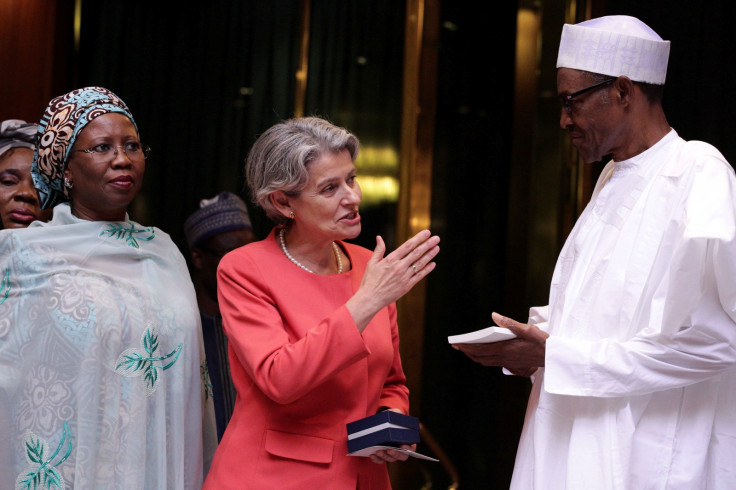Other voices should be heard by Security Council says female front runner for UN's top job
Unesco head also told Chatham House think tank education must be part of UN humanitarian efforts.

The leading woman candidate for the post of the next United Nations secretary-general has told a London think tank she wants to ensure that countries in developing regions of the world such as Africa can have their voices heard within the UN Security Council.
In a wide-ranging address to Chatham House on Tuesday (6 September), the current head of Unesco, Irina Bokova, said that she would like to see more openness among the 15 members of the Security Council.
There is often much criticism at the dominance of the council's five permanent veto-wielding members. The 10 other members are elected for two-year terms but there are more than 60 countries which have never been council members. The secretary-general cannot reform the make-up of the council but its structure has been a recurring theme candidates for the post have had to face in their campaigns.
Bokova said: "[Regarding] the reform of the Security Council, I am very much about introducing more democracy, more openness. I know that I was in Africa, and everybody was saying: 'We want to have a voice in the Security Council because this is where we want to express what we think about peace and security.'
"I think they are very justified ambitions that African countries have. From their point of view, I don't see the relationship between the secretary-general and the Security Council as a battleground.
"I really believe that the secretary-general can have the trust of the permanent members and the other members and can be a power broker who has ideas, who has initiatives, who can convince one or another member of the council of the merit of this or another decision," she said.
Education goals
Bokova, who is a former Bulgarian foreign minister, said that education had not been sufficiently part of humanitarian efforts in conflict zones, and cited the experience of developing literacy and culture in Afghanistan as an example that could be brought to bear in other troubled regions.
She said that Article 16 of the organisation's sustainable development goals meant that the UN should flex its soft power through promoting literacy, education, and culture.
"I am pleading for more education among refugees and displaced peoples because it gives opportunities to young people; opportunities to integrate in economic and social life. If we don't do that, they will fall prey to extremists. This is where the idea is that education is not simply a humanitarian concern, it is a security concern."
Multilateralism
She said that some branches of the UN were "underused" and while it invested much in peacekeeping, it needed to invest more in political missions.
"I believe in multilateralism. Multilateralism is an incredibly important thing. Nowadays in this globalised world there is no other way, it is very hard, it is difficult, multilateralism is very tedious work, it is hard to bring countries to overcome their differences, it is slow sometimes.
"It takes so long to adopt a decision on something but this is the only way that humanity can advance, diplomacy is hard work but this is the only way," she told the audience at Chatham House.
After the third secret ballot on favourites to become UN secretary-general among Security Council members at the end of August, Bokova came in third equal with Serbia's Vuk Jeremic behind the Portuguese prime minister Antonio Guterres and Miroslav Lajcak, the Slovak foreign minister.
Jean Krasno who launched the Campaign to Elect a Woman Secretary General, told IBTimes UK in August that an "old boys' network" was the reason why women candidates were not leading so far in the race to take over from Ban ki-Moon at the end of the year.
A final candidate for the post is expected to be presented to the UN General Assembly for rubber stamping by November.
© Copyright IBTimes 2025. All rights reserved.






















